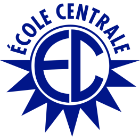Communication
Home-School Communication
Home-school communication is a valuable way to share information. Parents/guardians, are the child’s primary teachers and are encouraged to communicate with the school staff. Together, we can work to maximize children’s learning.
In school, the language of communication is French. School assemblies and concerts are conducted in French and English. Students are encouraged to speak French in classes and elsewhere in the school whether they are speaking to staff or their peers. Communication between school and parents is conducted in English.
School newsletters are sent home regularly during the year. Classroom newsletters are sent home by the first Friday of each month. Parent feedback is always welcomed and appreciated.
Custody
Please make sure the school is aware of any legal restrictions regarding custody and visitation rights. Forward all relevant legal documents to the school.
Reporting to the Office
Anyone entering the school at anytime is required to report to the office. If children are to be picked up during school hours, the secretary will communicate with the teacher and your child(ren) will be sent to the office to meet you. A note should be sent to the classroom teacher ahead of time. When messages/lunches etc., need to be delivered, the secretary will contact the classroom teacher.
The purpose of these procedures is to inform the school staff, ensure the safety of our students, ensure clear communication and minimize interruptions during class time.
Concerns
Communication is the key! For classroom concerns, request to speak to the teacher.
If you call during class time, the school secretary will take a message and the teacher will call you back as soon as possible. If the matter is not resolved to your satisfaction, the next step would be to contact the principal.
Student Agendas
Grades 3 and 4 students receive agendas to encourage effective organization, planning and homework information necessary for academic success. Agendas also help to increase parent involvement and enhance home and school communication
Conferences
Two yearly conferences are scheduled, one in the fall and one in winter/early spring. Students participate at both conferences with private parent/teacher time provided as needed. This three-way conference is an important way to support student learning.
Students benefit by:
- accepting greater responsibility for reporting on their progress to their parents;
- assuming greater accountability for the work they produce;
- taking increased responsibility and ownership for their own learning;
- focussing on their strengths and accomplishments;
- increasing their skills of organizing, communicating, managing time, problem-solving, decision-making, self-evaluating and goal-setting;
- having a focussed communication and interaction time with their parents;
- demonstrating their understanding of skills and concepts to parents.
Teachers benefit by:
- having a greater opportunity to teach skills in a real-life context;
- having increased parent interest, participation and support;
- having an opportunity to observe parent/child interaction;
- having students show significant academic and behavioural growth as they begin to take more responsibility for their own learning.
Parents/Guardians benefit by:
- having increased communication/interaction with their children;
- seeing their children as learners;
- taking an active role in goal-setting with their children;
- celebrating children’s successes.
School Plan
School plans are prepared annually in collaboration with the divisional priorities and staff. Parents receive this information in school newsletters.
Student Assessment and Reporting
Effective student assessment and evaluation are ongoing and multi-faceted providing teacher, students and parents/guardians with information about how students are doing in relation to program objectives, behavior and work ethics and how to plan together to achieve goals.
Ongoing communication/discussion with parents and progress reporting may include telephone calls, notes to parents, classroom visits by parents, informal dialogue, samples of children’s work, conferences and student agendas.
At École Centrale there are three formal reporting times during the school year:
- November - Report card sent home followed by student-led conferences and portfolio sharing.
- March - Report card sent home followed by student-led conferences and portfolio sharing.
- June - Report card and portfolio sent home.
Homework
Homework is also an important part of school life and is an activity where learning is extended after school. It is a means of reinforcing and continuing the learning process. It also helps students develop organization and independence skills. For grades 3 and 4 students, homework assignments are written in the student’s agenda. Parents/guardians are asked to review the agenda and contents of the school bag on a daily basis. Monitoring homework demonstrates that learning is important and that homework needs to be done. Students sense the home and school support and respond to expectations.
- Many activities parents/guardians already do apply to the definition of homework:
- visits to places of interest
- money management opportunities
- writing thank you cards, etc.
- discussing family history
Assessment/Evaluation
Each child is unique and individual differences are recognized and respected. The instructional program enables the child to advance on the basis of individual development. Therefore, emphasis is placed upon continuous progress according to the varying abilities of the student.
In order to respect various learning styles, a variety of methods and materials are used to assess progress. Daily observation of children as they participate in a variety of learning experiences is the most important and comprehensive way of assessing and evaluating children’s behaviour and learning.
Other ways may include:
- checklists (knowledge, skills, attitudes)
- anecdotal records
- student’s work (writing folder, reading logs, special projects),
- student’s self-evaluations
- teacher/student conferences
- rubrics (description of what a performance should look like along a fixed scale)
- rating scales (process/product)
- quizzes
- portfolios
- one-to-one interviews
- student self-assessments
- peer or group assessments.
 École Centrale
École Centrale